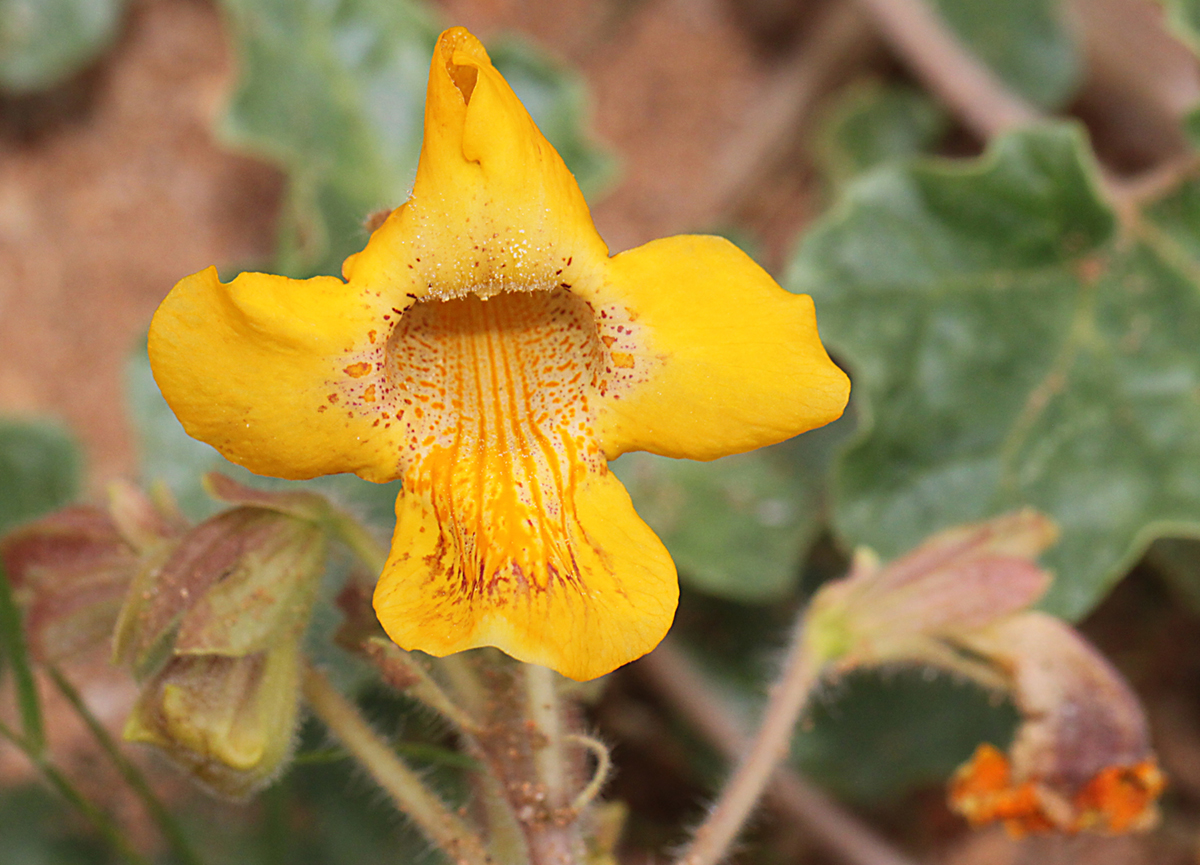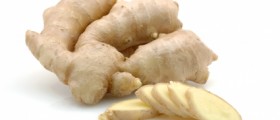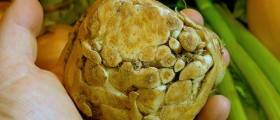
Devil's Claw is a plant of the sesame family, origin from South Africa. Tuberous roots of this plant uses to reduce pain and fever and to improve digestion. Devils claw usually grows in Namibia, Botswana and Southern Kalahari. Devil’s claw was brought to Europe by the colonists to be used for the treatment of arthritis. Today, many pharmaceutical companies include this plant in various creams, tinctures, capsules and tablets. Devil's claw is also available in forms such as whole, ground, liquid extract, tincture, dried root and tea made from dried root.
To relieve inflammation and pain, devil's claw is used in capsule form at a dose of 50 mg harpagosides daily. To increase appetite and stimulate digestion it is best to make a tea of 1 teaspoon of finely chopped root or root powder that should be poured with 2 cups boiling water, leaving to stand for 20 minutes.
Two main ingredient of Devil's claw are harpagoside and beta-sit sterol, which have anti-inflammatory properties.
Also, it was proved that Devil's claw has analgesic, sedative and diuretic properties that will be more noticed in chronic application than in the treatment of acute pain.
In addition, it was confirmed that Devil's claw can be useful for treating diseases of the liver, kidney, gallbladder and urinary bladder, arthritis and rheumatism.
Among the other, this plant helps to mitigate problems with the joints by increasing their vitality, increases appetite and stimulates digestion, decreases cholesterol and fatty acids in the blood.
Also, use of this plant is recommended in treating diabetes, thickening of the arteries, lumbago, gastrointestinal disturbances, menstrual difficulties, neuralgia, headaches, heartburn and gout.
In laboratory researches conducted on animals is proven that Devil’s claw is helpful in lowering blood pressure, slowing heart rate and normalizing heart rhythm.
Devil's Claw can also be used externally to treat wounds, sores, boils and skin lesions.
Devil's Claw can have certain side effects with ticlopidine, and warfare, which means that patients, using these drugs, should consult a physician before using Devil's Claw. In addition, Devil's Claw stimulates secretion of gastric acid, which can lead to certain complications in patients suffering from peptic ulcer, gastritis, or excess stomach acid. It is strictly forbidden to use Devil’s claw during pregnancy because it can cause uterine contractions. Also, patients suffering from gallbladder stone shouldn’t use this plant. Some other side effects of Devil’s claw include: headache, abdominal pain, and diarrhea, loss of appetite, nausea, taste changes and vomiting.

















Your thoughts on this
Loading...